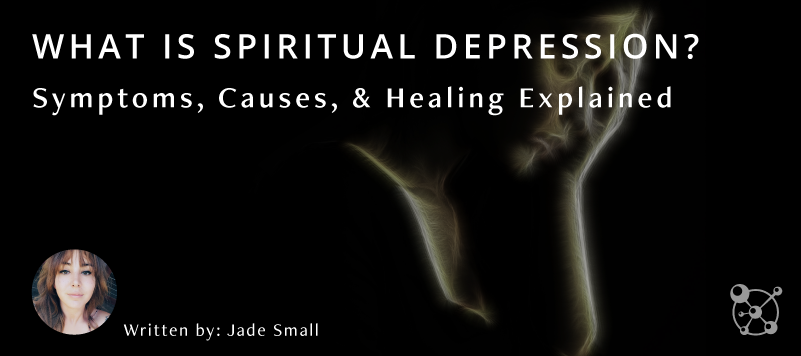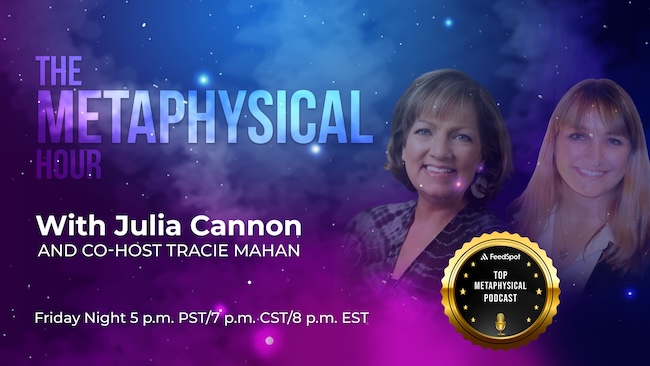Depression has been a well-known foe in the world of mental health for quite some time. It comes and goes throughout life, and is always accompanied by negative thought patterns and feelings. However, not many people consider spiritual depression. This article we will delve into the intricacies of spirituality, and how depression is very much a phenomenon we experience at some point in our spiritual journey.
Table of Contents
What is spiritual depression? Our definition
What is the spiritual meaning of depression? Is it one of the spiritual awakening symptoms? Well, one of the easiest ways to describe it would be losing touch with your faith. In terms of Christian faith, their connection to God becomes a vague relationship that feels like it is lost forever. This triggers feelings of hopelessness as their perspective on life becomes riddled with the traumas of their past.
 People struggling with spiritual depression have difficulty, or a downright inability, to connect with people around them. So, they tend to withdraw from society. They are overcome by despair, guilt, anxiety, self-doubt, anger, and many other negative feelings. There are also various physical symptoms that start showing up, like insomnia, or general exhaustion.
People struggling with spiritual depression have difficulty, or a downright inability, to connect with people around them. So, they tend to withdraw from society. They are overcome by despair, guilt, anxiety, self-doubt, anger, and many other negative feelings. There are also various physical symptoms that start showing up, like insomnia, or general exhaustion.
A recent study was conducted to find out how many U.S. citizens are struggling with spiritual depression. They found that 15% have been grappling with the effects. This is accompanied by an array of other mental health issues and has left the nation feeling disconnected from the rest of the population, even though they are not alone in their plight. This shows us that you can struggle with both spiritual and clinical depression simultaneously and both conditions can be just as debilitating as the other.
Spiritual depression symptoms
In order to identify someone who you suspect to be spiritually depressed, it is important to know what the symptoms are. In this next section, we will discuss the various symptoms that are brought on by spiritual depression. Remember, we all experience spiritual depression differently, so there are a lot of spiritual characteristics and symptoms as well as dark night of the soul stages. Here are a few examples:
Lack of Connection
Spiritual depression often manifests as a deep sense of disconnection, not only from God or one’s spiritual source but also from others. Individuals may feel isolated, unable to engage meaningfully in relationships or community, as if an invisible wall separates them from the world. This detachment can lead to feelings of loneliness and alienation, intensifying the depressive state. The absence of connection to others erodes one’s sense of belonging, further deepening the emotional and spiritual void.
Confusion in Beliefs
Another symptom of spiritual depression is confusion or doubt in one’s beliefs. Long-held convictions may no longer feel true or relevant, leading to inner turmoil. This uncertainty can create a sense of spiritual disorientation, where familiar beliefs are questioned, but new ones have not yet been formed. As spiritual identity becomes unclear, it often contributes to a feeling of being lost, amplifying depression and leaving the individual stuck in an emotional and existential limbo.
Feeling of isolation
Spiritual depression often leads to social withdrawal, causing individuals to distance themselves from friends, family, or religious communities they were once a part of.
Emotional Numbness
Some may find themselves emotionally numb, where it becomes difficult to connect with their usual range of emotions, including joy and happiness.
The feeling of being hopeless
The sense of hopelessness and helplessness can make it difficult for people to see the bigger picture. They are stuck in the troubles of their present moment and forget the possibility of a brighter future.
Disconnected to God
Spiritual doubt or the erosion of one’s faith can intensify feelings of despair. After a while, this can lead people to feel like their connection to Christ, or god is running thin. Even when they read the bible, they might not recognize the love they once felt for his word.
Fatigue
The emotional and mental toll of spiritual depression can lead to persistent fatigue, making it challenging to muster energy for daily activities. People struggling with spiritual depression will feel sluggish during the day as if their life force energy has been sucked right out of them.
Insomnia
Another sign of spiritual depression is the inability to sleep altogether. Insomnia can affect a person’s life in dramatic ways because they cannot sleep at night which leads to utter exhaustion.
Appetite decrease
 It is commonly known that clinical depression can cause appetite disruptions. Some people find they are more hungry and they struggle to feel satisfied. So, they eat and eat in order to find peace. Others lose their appetite altogether and just stop eating.
It is commonly known that clinical depression can cause appetite disruptions. Some people find they are more hungry and they struggle to feel satisfied. So, they eat and eat in order to find peace. Others lose their appetite altogether and just stop eating.
Aches and Pains
In times of spiritual depression, people often describe chronic physical pains. These might manifest differently for everyone, but generally, they are headaches, heart problems, muscle tension, and digestive issues. They are a direct result of the stress and tension associated with spiritual depression
Spiritual causes of depression
In exploring the intricacies of spiritual well-being, it becomes evident that there are often profound and deeply personal factors at play. In this section, we will get into the causes of spiritual depression. We will uncover the spiritual reasons for anxiety and depression. This section will bring light to the question: What is the spiritual root of depression?
A Loss of Faith
A loss of faith can create a profound sense of emptiness, leading to depression. When one’s trust in a higher power or life’s greater purpose fades, the world may feel void of meaning. This loss can result in feelings of isolation, hopelessness, and spiritual disconnection. Without the anchor of faith, it becomes challenging to find inner peace, leaving one adrift in emotional and existential uncertainty.
Spiritual Crisis
A spiritual crisis, or “dark night of the soul,” occurs when one’s core beliefs are shaken or questioned, often triggered by a life-altering event or deep internal reflection. This inner turmoil can result in a sense of purposelessness and confusion, as established spiritual truths no longer seem reliable. Depression may arise as the individual grapples with existential questions and searches for new spiritual ground to stand on.
Significant Life Events
Significant life events such as loss, trauma, or major transitions can act as catalysts for depression, especially when they challenge a person’s spiritual framework. These events can disrupt one’s sense of divine order or justice, leading to feelings of abandonment or despair. When the spiritual meaning attached to life is shaken, depression can emerge from a deep inner conflict between what was believed and what is now experienced.
Spiritual awakening depression
Depression and spiritual awakening often go hand in hand. At least for part of everyone’s spiritual journey, they can feel like they’re depressed, or overwhelmed by their spiritual revelations. Spiritual awakening depression is a temporary phase in a spiritual journey. It starts when you realize that you have changed, and so have your ideals of the world. This can be depressing because you might mourn the loss of your old self while you shed the old beliefs and attachments. Ultimately, this can lead to personal and spiritual growth. But the process is certainly not fun for a period of time. Read more here about the meaning of spiritual awakening.
Being Overly Introspective
Going within is often spoken about as a great way to find out more about yourself. However, the Puritans remind us that too much introspection can actually be damaging to your faith and cause spiritual depression. If you are consumed by self-examination, then you are not tuning in to god’s guidance, and wisdom which he shares every day. Some people find comfort in introspective thought. So, they might benefit from seeking a professional Christian counselor on the matter.
Sinning
Sin is one of the leading causes of spiritual depression. Everyone seeks out coping strategies for depression, but those who seek to sin are only making their matters worse. It can only bring on more emotional pain as the guilt of those sins pulls you further from your God.
The Woes of the World
Let’s face it, the world is not a ball of love and light 100% of the time. There is turmoil and troubles coming from every direction. People are suffering from illness, dying of hunger, outraged by rising prices of fuel and food, and overcome with war. Sometimes, simply picking up your phone is a deep reminder of everyone’s struggles and this can lead to a feeling of helplessness which leads to hopelessness. This causes people to think of why their world is so riddled with despair when their god should be there to put a stop to all of it. This thought disconnects you from your faith.
Lukewarmness
Being lukewarm in a religious sense is a lack of fervor and commitment. It can lead to spiritual depression by eroding your sense of purpose in your faith. Moreover, it can make you feel disconnected from a supportive community, which causes feelings of guilt, shame, doubt, stagnation, and spiritual confusion. To be spiritual, especially in the Christian sense, is to ensure you partake in your religious praise on a regular basis. So, whatever this means for you, make sure you are practicing regularly.
How to heal depression spiritually
 In this next section, we will tap into the spiritual healing for depression. Of course, the first thing we want you to understand is that there is nothing wrong with seeking professional help. This can be in the form of a psychologist, or even a counselor at your local church. They will be there to listen openly and without judgment. Here are some things you can try by yourself in the meantime.
In this next section, we will tap into the spiritual healing for depression. Of course, the first thing we want you to understand is that there is nothing wrong with seeking professional help. This can be in the form of a psychologist, or even a counselor at your local church. They will be there to listen openly and without judgment. Here are some things you can try by yourself in the meantime.
Encouragement
A little bit of encouragement goes a long way. A lot of the time, people lose faith in god and they forget how to trust his guidance. So, to rebuild your relationship with the almighty, you need to encourage that faith every day. This means you need to continue to seek out his advice, even if you feel you can’t trust it. To complete this task, make sure you keep an open mind and heart.
Encouragement also means you need to remind yourself of all the light you have to offer to this world. By this, we mean the positive attributes that you can use to uplift those around you. By helping others, you can raise both their frequency and your own.
Reaffirming your Connection to god
This step might seem redundant to those who are deeply in their spiritual depression phase. However, every little effort helps. All you have to do is remind yourself that you are always divinely connected to god. Incorporate daily affirmations into your lifestyle that set a positive light on your relationship with god. With each day, you will begin to see a difference.
Therapeutic Options
Healing depression through spiritual methods often involves combining traditional therapeutic techniques with spiritual practices. Counseling, particularly spiritual or faith-based counseling, can offer guidance in reconnecting with one’s beliefs, addressing the spiritual aspects of depression. Therapists trained in holistic approaches like Quantum Healing Hypnosis Technique (QHHT) have found success in helping individuals uncover past trauma or soul-level issues contributing to their emotional struggles. Studies suggest that counseling, combined with spiritual practices like meditation, fosters emotional well-being by reinforcing a sense of inner peace and purpose .
Holistic Therapies: QHHT and Meditation
Quantum Healing Hypnosis Technique (QHHT) involves guiding individuals into a deep trance state to access the subconscious mind and past-life memories. This process can help individuals explore the spiritual roots of their depression, bringing hidden emotional wounds to the surface for healing. Though more anecdotal than empirically verified, practitioners of QHHT report significant emotional relief following sessions.
Studies indicate that mindfulness and spiritual meditation practices can reduce depressive symptoms by promoting relaxation and reducing the mind’s focus on negative thoughts. Consistent meditation practice also strengthens one’s connection to the present moment, grounding the mind in calmness and spiritual awareness.
Alternative Methods: Energy Healing, Meditation, and Grounding
Several alternative healing methods focus on restoring balance to the mind, body, and spirit. Energy healing, such as Reiki or chakra balancing, is rooted in the idea that emotional distress often results from blocked energy in the body. Practitioners aim to clear these blockages, allowing for the free flow of spiritual and emotional energy, which may lead to relief from depression. Research into energy healing is still developing, but many report a subjective sense of well-being after sessions.
Step-by-Step Approach for Spiritual Healing
- Daily Meditation Practice: Begin with 10-20 minutes of mindfulness or spiritual meditation each day. Focus on breath awareness, visualization of light, or reciting a prayer or mantra that resonates with your beliefs.
- Grounding Techniques: Spend time outdoors, connecting with nature. Walking barefoot on the earth (known as “earthing” or grounding) can help reconnect you with the present moment and alleviate feelings of disconnection.
- Energy Healing: Schedule regular sessions with an experienced energy healer, or practice self-healing techniques like chakra meditations, which focus on clearing specific energy centers in the body.
- Journaling: Engage in reflective journaling after meditative or healing practices. Writing down thoughts and emotions can help integrate insights and foster a deeper spiritual connection.
- Seek Spiritual Community: Join spiritual groups or attend workshops that align with your beliefs. Rebuilding a sense of spiritual community can be deeply healing, alleviating feelings of isolation.
Incorporating these methods with openness and consistency allows for a holistic, spiritually grounded approach to healing depression. Combining professional therapeutic guidance with personal spiritual practices creates a more balanced path toward emotional and spiritual recovery.
The Connection Between Spiritual Depression and Mental Health Issues
Spiritual depression, while often overlooked, plays a significant role in mental health struggles. It occurs when an individual experiences a deep sense of disconnection from their spiritual beliefs or sense of purpose, leading to symptoms that resemble clinical depression. Feelings of emptiness, hopelessness, and confusion in one’s faith can exacerbate mental health issues, creating a cycle where emotional and spiritual well-being are intertwined. Understanding this connection is crucial, as addressing both the psychological and spiritual dimensions of depression offers a more holistic path to healing.
A Comparison: Spiritual Depression vs. Clinical Depression
While spiritual depression and clinical depression share similar symptoms, such as sadness, fatigue, and a lack of motivation, the underlying causes set them apart. Clinical depression is typically understood as a mental health disorder linked to chemical imbalances in the brain, genetics, or environmental stressors. It often requires interventions such as psychotherapy, medication, and lifestyle changes to address these biological and psychological factors.
In contrast, spiritual depression arises primarily from a deep existential crisis or a perceived disconnection from one’s spiritual beliefs, purpose, or faith. It is not necessarily rooted in biochemical imbalances, but rather in a loss of meaning or spiritual disillusionment. While the emotional symptoms may mirror those of clinical depression, the origin is more metaphysical, often centered on soul-level struggles or spiritual isolation.
Overlapping Symptoms
The symptoms of spiritual and clinical depression often overlap, blurring the distinction between the two. Both can involve:
- Feelings of hopelessness and despair
- A sense of emptiness or purposelessness
- Withdrawal from social interactions
- Fatigue and loss of motivation
- Difficulty finding joy or meaning in life
This overlap makes it challenging to determine whether one is facing a spiritual or psychological crisis or a combination of both. The two conditions can co-exist, where an individual’s spiritual struggle deepens their clinical depression, or vice versa.
Should Spiritual Depression Be Addressed Through Traditional Mental Health Avenues?
While spiritual depression is rooted in existential and metaphysical concerns, traditional mental health approaches can still be effective, especially when the emotional and psychological toll becomes overwhelming. Therapy, particularly with practitioners who acknowledge spiritual dimensions, can help individuals explore the connections between their mental and spiritual health.
For those experiencing both spiritual and clinical depression, integrating traditional methods like cognitive-behavioral therapy (CBT) or talk therapy with spiritual practices—such as meditation, prayer, or spiritual counseling—can provide a more comprehensive healing path. However, solely focusing on the spiritual dimension without addressing possible underlying psychological or biological factors may leave one struggling with unresolved depression.
Ultimately, addressing spiritual depression requires a balanced approach. Mental health professionals can provide vital emotional support, while spiritual counselors or holistic therapies can help address the root of the spiritual crisis. In severe cases, working with both mental health professionals and spiritual guides offers the best chance for full recovery.
Research that backs up the existence of spiritual depression
Spirituality and Depression Treatment
A systematic review explored how integrating spirituality into therapeutic practices could support depression treatment. The study looked at interventions that included spiritual aspects like mindfulness, prayer, and religious coping mechanisms. The findings showed that these spiritual approaches had a positive impact on reducing depressive symptoms, offering valuable insights into how spiritual practices can enhance mental health care.
Spiritual Healing for Depression
A pilot study examined how spiritual healing affects adults with moderate depression. The results indicated a notable reduction in depression scores for participants who received spiritual healing sessions, suggesting that faith-based or holistic interventions can be an effective complement to conventional mental health treatments.
Faith-Based Spiritual Intervention
In another study, researchers analyzed the effects of faith-based spiritual interventions, where themes such as forgiveness, hope, and transcendence were emphasized. These spiritual sessions not only helped to reduce depressive symptoms but also strengthened participants’ sense of connection to themselves and their communities. This supports the idea that incorporating spiritual themes into mental health interventions can foster emotional healing.
Spirituality and Mental Health
Research published in Frontiers in Psychology highlighted the positive role spirituality plays in overall mental health. By improving coping strategies, reducing stress, and enhancing psychological well-being, spirituality was shown to have significant benefits for managing depression and other mental health challenges. This reinforces the view that spiritual needs should be addressed as part of comprehensive mental health care.
This research underscores the connection between spirituality and mental well-being, validating spiritual depression as a significant area that can be effectively addressed within mental health frameworks.
How to Prevent Spiritual Depression
Preventing spiritual depression requires cultivating practices that nurture both the spirit and mind. Engaging in regular spiritual habits not only strengthens one’s connection to a higher purpose but also builds resilience against emotional and existential crises. Here are key practices that can help prevent spiritual depression:
Regular Meditation
Meditation is a powerful tool for maintaining inner peace and spiritual balance. Daily meditation, particularly mindfulness or spiritual meditation, helps center the mind and connect to a deeper sense of purpose. By setting aside even 10-20 minutes a day for quiet reflection, individuals can reduce stress, enhance self-awareness, and remain grounded in their spiritual beliefs. Studies show that regular meditation promotes mental well-being and decreases symptoms of depression by fostering a sense of inner calm and clarity.
Grounding Exercises
Grounding, or earthing, involves connecting with the earth physically and spiritually, which can help prevent feelings of disconnection that often lead to spiritual depression. Walking barefoot on grass, sitting under a tree, or spending mindful time in nature allows individuals to reconnect with the present moment and dispel anxious or depressive thoughts. Grounding exercises restore a sense of stability and can reinforce spiritual alignment by helping individuals feel supported and rooted in the world.
Maintaining Spiritual Connections
Building and maintaining a strong spiritual community is another key factor in preventing spiritual depression. Surrounding oneself with like-minded individuals who share similar spiritual values fosters a sense of belonging and support. Attending spiritual gatherings, engaging in group prayer or meditation, and sharing personal experiences within a faith-based community can strengthen one’s faith and create a buffer against isolation. Spiritual connection reminds individuals that they are part of something greater, which helps ward off feelings of loneliness or purposelessness.
Consistent Self-Reflection
Journaling or engaging in regular self-reflection allows individuals to track their spiritual journey and notice when they might be veering away from their spiritual center. By reflecting on personal beliefs, challenges, and spiritual progress, individuals can stay aligned with their purpose and identify potential sources of spiritual disconnection before they escalate into depression.
Engaging in Acts of Service
Participating in acts of kindness and service helps cultivate a sense of purpose and fulfillment. When individuals focus on giving back, it shifts their attention away from their own struggles and reinforces a feeling of connection to the broader human experience. Volunteering or helping others within a spiritual context can reignite a sense of compassion and meaningful engagement, preventing the feelings of emptiness often associated with spiritual depression.
By consistently practicing these habits, individuals can maintain a strong spiritual foundation that guards against emotional disconnection, fostering both spiritual vitality and mental well-being.
Our conclusion on spiritual sadness
In conclusion, spiritual depression is a complex phenomenon. Now that you have read the article, hopefully, you understand that you, or someone you love, are not feeling sad for no reason. Everyone goes through a period of spiritual depression at some point in their life. Try our What stage of spiritual awakening am I in quiz for more information.
FAQs
Is depression spiritual?
Not all depression is spiritual, but a lot of it is. The same can be said in terms of religion. Not all spiritual depression is based on religious detachment or a waning relationship with god. Some people are spiritual but do not practice a religion and struggle with similar feelings of disconnectedness.
Where can I find spiritual help for depression?
If you are religious, you will not struggle to find someone to help you through this period of spiritual depression. There are always Christian counselors ready and available at your Church, or you can find one online. Additionally, you can seek the help of a professional psychologist who will adhere to your belief system.
Is depression a spirit?
Depression is not a spirit. When people talk about “the spirit of depression,” they’re using words to explain how depression can feel like an overwhelming force. But it’s not an actual spirit or ghost; it’s a complex mental health condition with various causes, like biology, life events, and feelings, but it’s not a supernatural thing.
Resources
Interested in becoming a QHHT Practitioner?
Find out how YOU can become a QHHT Practitioner. We offer an entire online course journey to get you started, growing, and achieving your goals.


Jade Small
I am a creative and a wanderer. Mysteries and connections are what inspire me to write. While on my path, my purpose is to bring you information to help inspire you on your journey on this place called earth.
See more from these categories
Read similar posts

Wondering How to Trust the Universe When Things Go Wrong? It’s natural to feel lost when life doesn’t go as planned. However, learning how to have faith in the universe can transform your perspective. This practice involves believing…Read More»

In the realm of metaphysical literature, few names resonate as profoundly as Dolores Cannon. A luminary in the world of hypnosis and regression therapy, Dolores Cannon captivated readers with her unique ability to unlock the…Read More»





